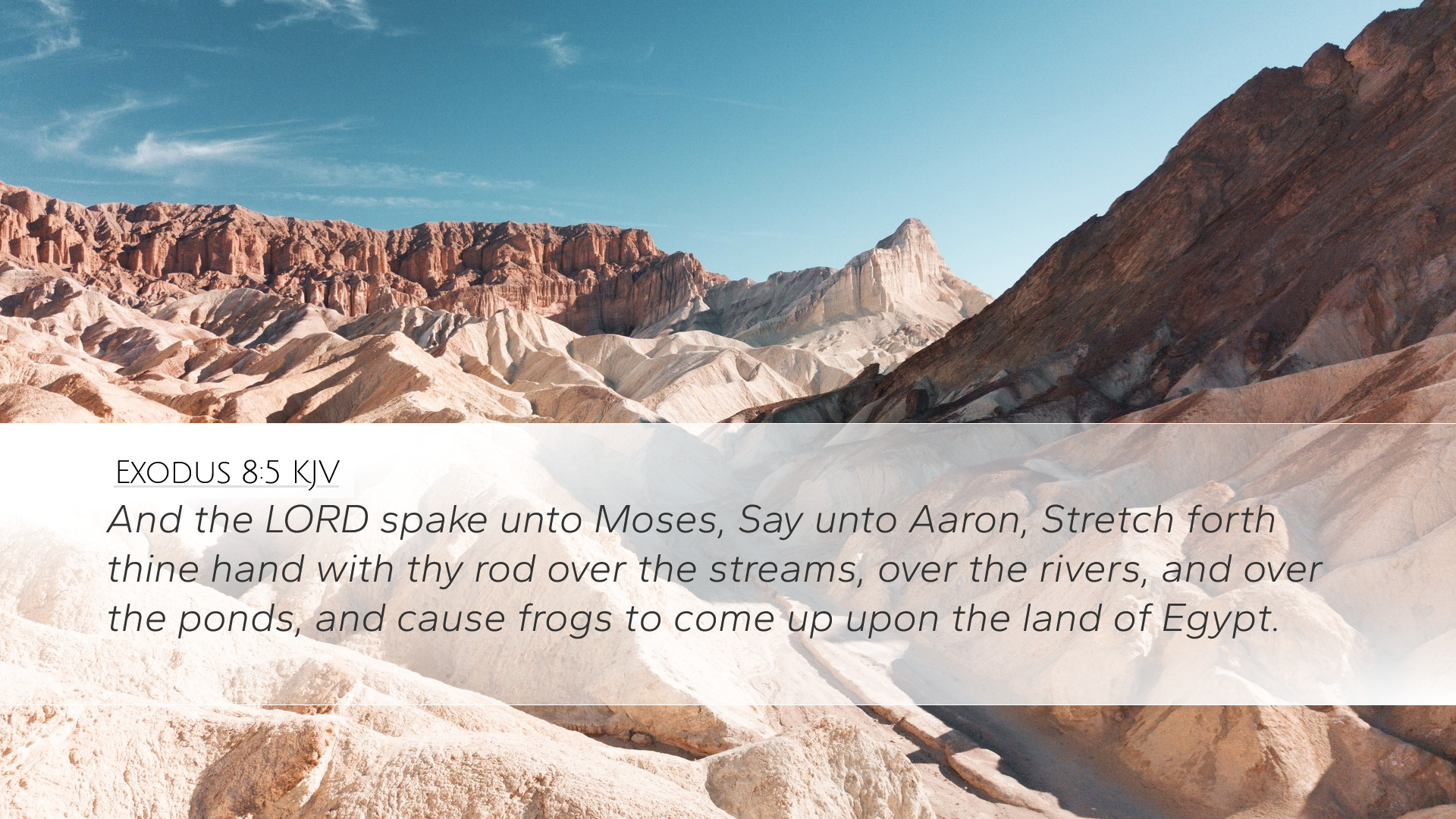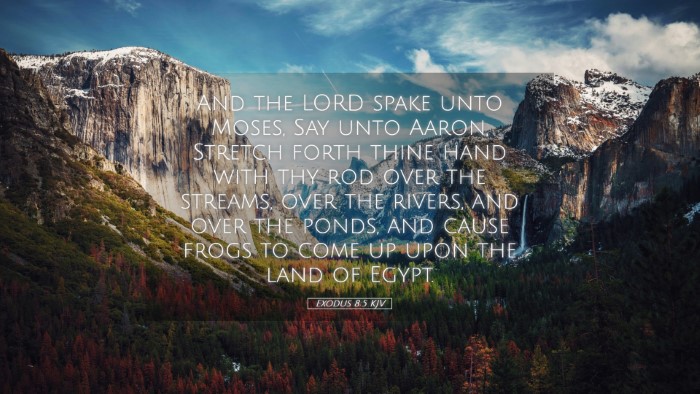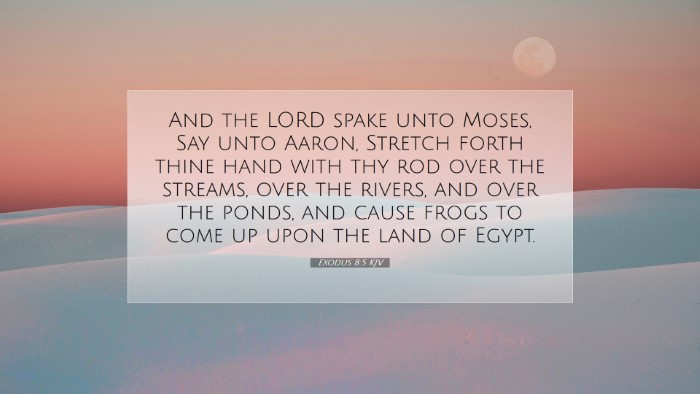Commentary on Exodus 8:5
Exodus 8:5 states, "And the Lord spake unto Moses, Say unto Aaron, Stretch out thine hand with thy rod over the streams, over the rivers, and over the ponds, and cause frogs to come up upon the land of Egypt." This verse marks a critical moment in the sequence of plagues that God sends upon Egypt, demonstrating His power in opposition to Pharaoh's refusal to humble himself before the Almighty.
Contextual Background
To understand this verse, we must consider the broader narrative surrounding the Exodus. The people of Israel were languishing in bondage, and God had chosen Moses as His instrument to deliver them from slavery. Each plague serves to showcase God's authority over the Egyptian gods and to compel Pharaoh to release the Israelites.
The Role of Moses and Aaron
This passage highlights the collaborative nature of Moses and Aaron's ministry. Matthew Henry notes that it is here, in the communication from God to Moses and subsequently through Aaron, that we see God's order and structure in leadership roles. Moses, having previously expressed reluctance, is now a bold leader, with Aaron acting as his mouthpiece. This serves as a reminder of the importance of divine ordination in leadership within the church and community.
The Significance of the Frogs
Frogs, in the context of the plagues, are particularly symbolic. They were common in Egypt and were associated with the goddess Heket, the goddess of fertility and childbirth. Albert Barnes explains that the specific instruction to bring forth frogs was a direct affront to the Egyptian pantheon. Thus, God not only brings judgment but also engages in a theological confrontation with Egypt’s idols.
Theological Implications
- Divine Sovereignty: This act illustrates God's supreme authority over creation. God commands the multiplication of frogs, showing His control over life and nature.
- Judgment on Idolatry: The frogs serve as a reminder of the futility of idol worship. The Egyptians relied on their gods, yet they could do nothing to prevent God's judgment.
- Repentance and Mercy: The opportunity for Pharaoh to acknowledge God and repent is juxtaposed against the hardening of his heart, showing the human tendency to resist divine authority.
Practical Applications
For pastors, students, and theologians, this passage offers rich lessons:
- The Nature of Obedience: Aaron's obedience in stretching out the rod is a powerful reminder of the importance of following God’s commands, even when the task seems strange or daunting.
- Confronting Injustice: The ongoing plight of the Israelites serves to remind contemporary leaders of their duty to confront and advocate against injustice in society.
- God’s Persistence in Calling: God's unwavering call to Pharaoh highlights His patience and desire for all to turn to Him, emphasizing the need for ministry that reflects God’s persistent grace.
Conclusion
Exodus 8:5 serves as a profound reminder of God’s power and the serious implications of human resistance to His will. The interplay between divine command and human action exemplified in Moses and Aaron carries timeless significance for all who engage with Scripture. This verse, set against the larger narrative of the Exodus, not only illustrates the dynamics of God’s covenant relationship with His people but also serves as an invitation for deeper reflection on the nature of divine judgment and mercy.


